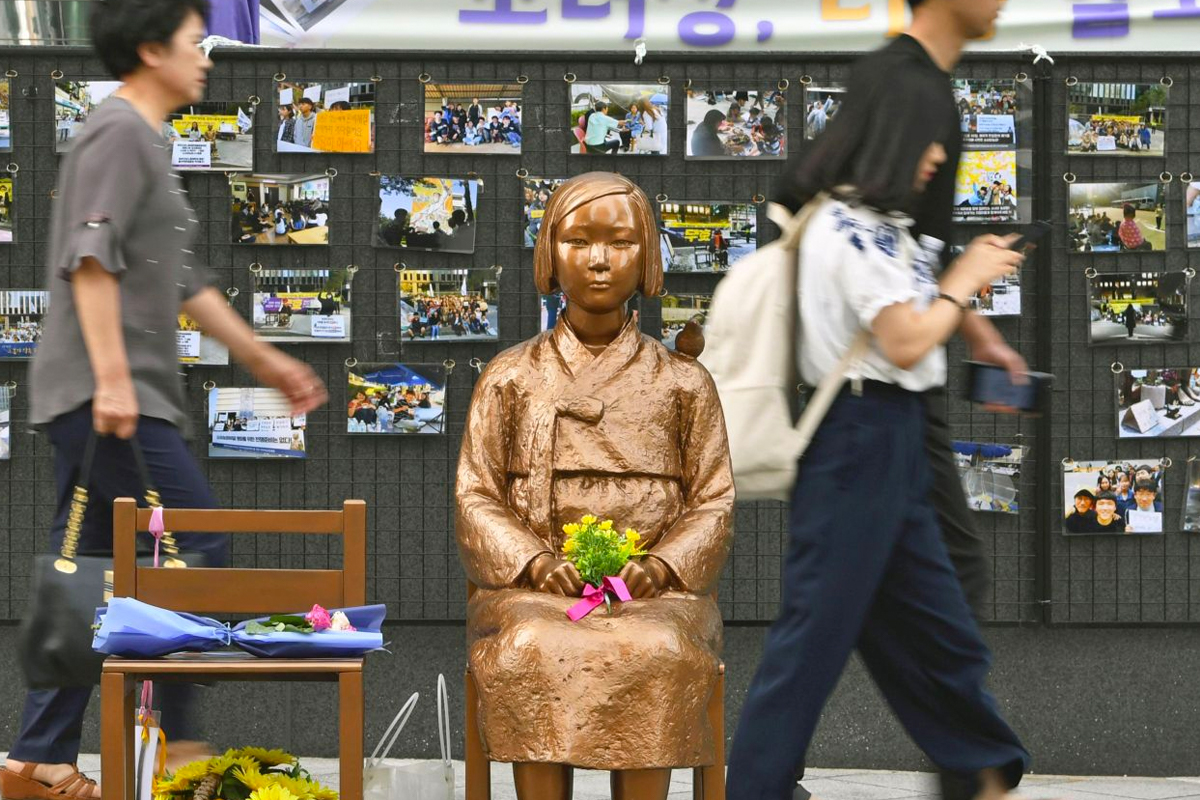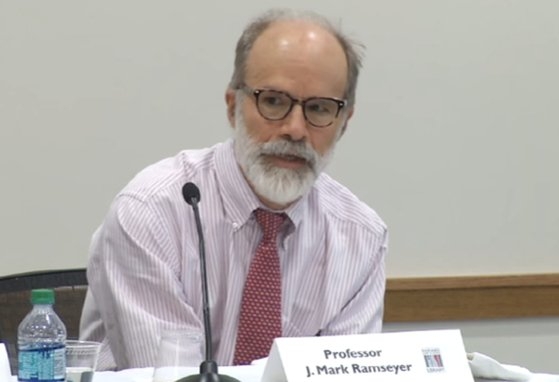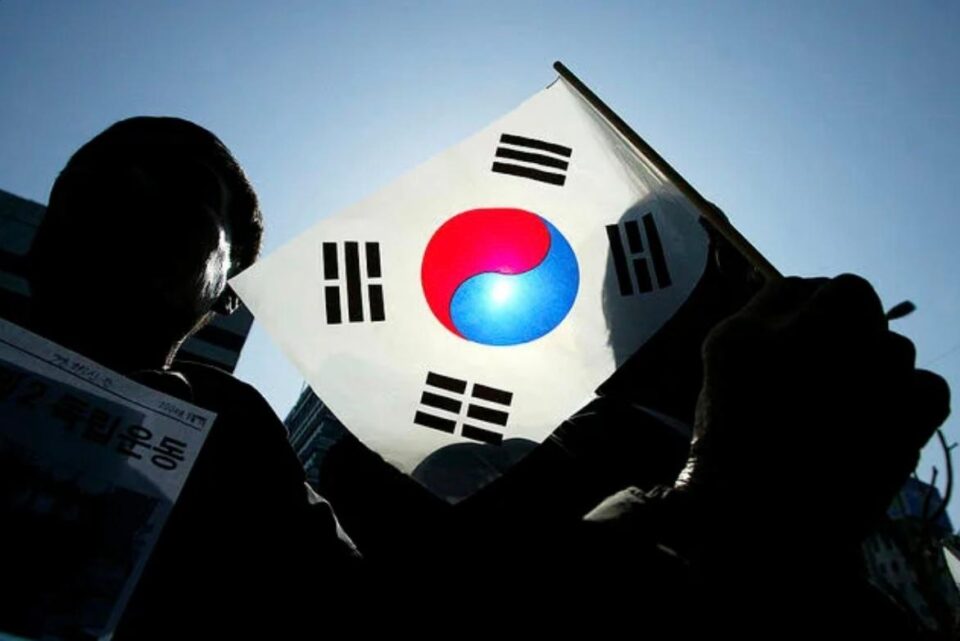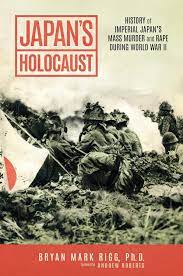While Japan-Korea relations are in an improving mood, a pending historical issue is lying in the background. In 2020, Harvard University professor J. Mark Ramseyer, a leading scholar of Japanese studies, published a paper denying the “sex slave” theory that had been circulating in the public domain regarding the comfort women issue. He will publish a “record of the battle,” including the results of his research and responses to criticism, and expresses his determination to “continue fighting for academia.
–In 1990, I began researching the public prostitution system in prewar Japan.
I was going to write about interesting contracts because I specialize in law,” he said. In the case of public prostitution, you have to report it to the police, and in prewar Tokyo, the police had well-designed data.”
–The 2020 paper shows that comfort women were not “sex slaves” who were forced into prostitution, but only an extension of the public prostitution system in Japan!
When I was collecting documents on Japanese society, I came across some documents on comfort women. If you take the time to read through them, the comfort women’s contracts also fit directly into the 30-year-old analysis of contracts for the public prostitution system. I thought it was interesting, so I wrote a very short paper, about eight pages.”
-Although it is an extension, there is also a difference in that comfort women are “treated better” than public prostitutes in Tokyo.
The Tokyo public prostitutes had a six-year contract, but the comfort women had a two-year contract, which was shorter and a little more expensive. The public prostitutes in Tokyo are relatively safe, but the comfort stations overseas are dangerous, with fighting going on nearby or deep in the jungle. The people running the comfort stations needed to make sure that the women worked despite the risks, so they had to come to a mutually agreeable contract.
–The theory that “comfort women = sex slaves” spread worldwide in 1996 with the report of UN Special Rapporteur Coomaraswamy.
I thought it was ridiculous, though it seems to be based on the testimony of Seiji Yoshida, who perjured himself as having forcibly taken women to the Korean Peninsula. It is common for U.S. scholars to make crude statements about Japan, but now even researchers specializing in Japanese history and literature are talking about ‘comfort women = sexual slavery. I wondered if I could still be called a Japanese researcher.
–After the publication of the paper, I was strongly criticized by my colleagues and other researchers in the U.S. and South Korea, and there was a signature campaign to withdraw the paper.
After the publication of the paper, I received strong criticism from U.S. and South Korean researchers, including my colleagues. People who knew nothing about the Korean Peninsula signed the petition saying, ‘Ramseyer wrote a terrible thing about comfort women. I can only think of it as cowardice, fear that if they don’t criticize Ramseyer, they will be criticized.
–There were not a few voices of support in Japan. Did you have any intention from the beginning to communicate this to the public?
I was going to send out a message, but no one reads my papers (laughs). Ironically, one of my acquaintances in Japan told me that if there had been no criticism, it would have been read only by a few experts and your mother.
–Do you have any thoughts on this as a researcher?
As a researcher, do what you want to do in your research, and when you reach a conclusion, publish it without apology.” If you have done nothing wrong as a scholar, you must decide in advance never to apologize for your attitude. It is more basic for a human being, rather than an academic, to say only what is right. We will continue to fight.”
-In 2016, when Park Geun-hye was in power, she established the “Reconciliation and Healing Foundation” to conduct projects such as cash payments to former comfort women and their bereaved families, using 1 billion yen contributed by the Japanese government based on the previous year’s Japan-Korea agreement. The foundation was suddenly dissolved under the administration of Moon Jae-in.
The government said it was done with the foundation after the 2003 agreement, but it was dissolved after the change of government. I was so disappointed when I saw that. I wondered how we could negotiate with South Korea.
–How should Japan deal with South Korea?
U.S. researchers tend to immediately tell Japan, “Do this or do that,” and recently even the U.S. ambassador to Japan seems to be giving orders. I think that Japan, the U.S., and South Korea should get along well with each other, but in negotiations with South Korea, we should clearly state that history is history and that they were not sex slaves.
Professor Ramseyer completely debunks the theory of comfort women as sex slaves.
The book includes a 2020 paper that disputes the “comfort women = sex slaves” theory, a rebuttal of that criticism, and a 1990 paper on the “indentured servitude contracts” of Tokyo’s prewar public prostitutes, which inspired the research. The “indentured servitude contract” is a contract in which the employer pays the employee in advance, and upon repayment, the contract terminates. In game theory, he analyzed the contract as a result of the interests of both parties: the women want a guarantee of adequate remuneration for their high-risk work, while the brothel needs an incentive to have them work to satisfy their clients. He denied that they were “slaves.”
■John Mark Ramseyer was born in 1954 in Chicago, USA. He is a professor of law at Harvard Law School and professor of Japanese law at the Reischauer Institute for Japanese Studies. He came to Japan with his missionary father when he was six months old and spent his high school years in Japan. He received the Order of the Rising Sun, Gold Rays with Neck Ribbon in 2018. He is the author of numerous books. His Japanese translations include “Law and Economics: An Economic Analysis of Japanese Law” (Kobundo).
(Reporting by Shinsuke Unno)











